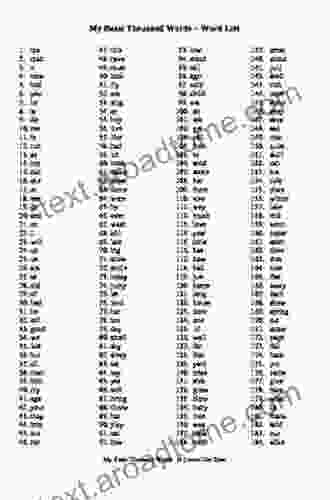Principles of Asynchronous Circuit Design: The Ultimate Guide to Asynchronous Systems

<meta name="viewport" content="width=device-width, initial-scale=1.0"> <meta name="keywords" content="Principles of Asynchronous Circuit Design, Asynchronous Systems, Self-timed Systems, Circuit Design, VLSI Design, Computer Architecture, High-Performance Computing"> <link rel="stylesheet" href="style.css"> In today's fast-paced world, the demand for high-performance computing systems is ever-increasing. To meet this demand, engineers are constantly pushing the boundaries of circuit design, seeking new ways to enhance speed and efficiency. Asynchronous circuit design, with its inherent ability to operate without a global clock, has emerged as a promising solution for next-generation computing systems. This book, "Principles of Asynchronous Circuit Design," provides a comprehensive guide to the fundamental principles of asynchronous circuit design. It explores the concepts and techniques that underpin the design of self-timed systems, enabling engineers to harness the full potential of asynchronous circuits. <h2>Key Features</h2> * **In-depth coverage of asynchronous circuit design principles:** The book delves into the theoretical foundations of asynchronous circuit design, covering topics such as handshake protocols, isochronic forks, micropipelines, and more. * **Practical examples and case studies:** The book is enriched with numerous examples and case studies, providing hands-on insights into the practical aspects of asynchronous circuit design. * **Advanced techniques for high-performance asynchronous circuits:** The book introduces advanced techniques for optimizing the performance of asynchronous circuits, including speculative execution, flow control, and resource allocation. * **Comprehensive coverage of VLSI design and implementation:** The book explores the challenges of implementing asynchronous circuits in VLSI, providing guidance on synthesis, verification, and testing techniques. * **Detailed analysis of asynchronous computer architectures:** The book analyzes the architectural implications of asynchronous circuit design, discussing the impact on processor design, memory systems, and communication protocols. <h2>Benefits of Asynchronous Circuit Design</h2> Asynchronous circuit design offers several key advantages over traditional synchronous approaches: * **Higher speed:** Asynchronous circuits can operate faster than synchronous circuits, as they are not limited by a global clock. * **Lower power consumption:** Asynchronous circuits consume less power than synchronous circuits, as they only switch when necessary. * **Higher reliability:** Asynchronous circuits are inherently more reliable than synchronous circuits, as they do not suffer from clock skew and other timing problems. * **Enhanced scalability:** Asynchronous circuits are more scalable than synchronous circuits, as they can be easily partitioned and composed. <h2>Applications of Asynchronous Circuit Design</h2> Asynchronous circuit design has a wide range of applications, including: * **High-performance computing systems:** Asynchronous circuits are ideal for high-performance computing systems, where speed and efficiency are paramount. * **Embedded systems:** Asynchronous circuits are well-suited for embedded systems, where low power consumption and reliability are critical. * **Wireless communication systems:** Asynchronous circuits can be used in wireless communication systems to reduce power consumption and improve performance. * **Automotive systems:** Asynchronous circuits are finding applications in automotive systems, where safety and reliability are essential. <h2>Target Audience</h2> This book is written for a wide range of readers, including: * Circuit designers * VLSI engineers * Computer architects * Embedded systems designers * Researchers in asynchronous circuit design "Principles of Asynchronous Circuit Design" is the definitive guide to the principles and practices of asynchronous circuit design. It provides a comprehensive understanding of this emerging field, empowering engineers to design high-performance, low-power, reliable, and scalable computing systems. Free Download Your Copy TodayAlt attributes for images:
- Image of a computer chip: Asynchronous circuit design principles enable the creation of high-performance, low-power chips.
- Image of a circuit diagram: The book covers the fundamentals of asynchronous circuit design, including handshake protocols, isochronic forks, and micropipelines.
- Image of a computer: Asynchronous circuit design can be applied to a wide range of computing systems, including high-performance computing systems, embedded systems, and wireless communication systems.
- Image of a book: The book is an essential resource for engineers and researchers interested in asynchronous circuit design.
5 out of 5
| Language | : | English |
| File size | : | 6835 KB |
| Text-to-Speech | : | Enabled |
| Screen Reader | : | Supported |
| Print length | : | 357 pages |
Do you want to contribute by writing guest posts on this blog?
Please contact us and send us a resume of previous articles that you have written.
 Book
Book Novel
Novel Page
Page Chapter
Chapter Text
Text Story
Story Genre
Genre Reader
Reader Library
Library Paperback
Paperback E-book
E-book Magazine
Magazine Newspaper
Newspaper Paragraph
Paragraph Sentence
Sentence Bookmark
Bookmark Shelf
Shelf Glossary
Glossary Bibliography
Bibliography Foreword
Foreword Preface
Preface Synopsis
Synopsis Annotation
Annotation Footnote
Footnote Manuscript
Manuscript Scroll
Scroll Codex
Codex Tome
Tome Bestseller
Bestseller Classics
Classics Library card
Library card Narrative
Narrative Biography
Biography Autobiography
Autobiography Memoir
Memoir Reference
Reference Encyclopedia
Encyclopedia Maurice Nicoll
Maurice Nicoll Nadia Higgins
Nadia Higgins Meg Hafdahl
Meg Hafdahl Martin Patenaude
Martin Patenaude Markus Thewes
Markus Thewes Mauro Porcelli
Mauro Porcelli Pat Welsh
Pat Welsh Maureen K Robinson
Maureen K Robinson Valerie Poore
Valerie Poore Trevione Fleming
Trevione Fleming Peter J Snyder
Peter J Snyder Meirina Soe
Meirina Soe Daisy Lovely
Daisy Lovely Rob Thorpe
Rob Thorpe Matt Harrison
Matt Harrison Sue Downing
Sue Downing Valerie Barnes Lipscomb
Valerie Barnes Lipscomb Erin Green
Erin Green Mars Media
Mars Media Margaret Robinson Rutherford Phd
Margaret Robinson Rutherford Phd
Light bulbAdvertise smarter! Our strategic ad space ensures maximum exposure. Reserve your spot today!
 W.H. AudenJapanese Tokyo Scenery Part 10 Tokyo Landscape: A Captivating Journey Through...
W.H. AudenJapanese Tokyo Scenery Part 10 Tokyo Landscape: A Captivating Journey Through... Dan BellFollow ·3.7k
Dan BellFollow ·3.7k Carson BlairFollow ·19k
Carson BlairFollow ·19k David BaldacciFollow ·6.3k
David BaldacciFollow ·6.3k Davion PowellFollow ·11.4k
Davion PowellFollow ·11.4k Travis FosterFollow ·19.8k
Travis FosterFollow ·19.8k Duane KellyFollow ·12.8k
Duane KellyFollow ·12.8k W.H. AudenFollow ·8k
W.H. AudenFollow ·8k Jackson HayesFollow ·12.1k
Jackson HayesFollow ·12.1k

 Ralph Ellison
Ralph EllisonIntelligent Video Surveillance Systems: The Ultimate...
In a world...

 Jeffrey Cox
Jeffrey CoxThe Origins of the Modern World: A Journey to the Roots...
Embark on an Extraordinary...

 Paulo Coelho
Paulo CoelhoUnlock the Power of Integrated Medical Imaging with...
In the rapidly evolving...

 Charles Reed
Charles ReedThe Christ of the Covenants: Unlocking the Mystery of...
Embark on a Profound...

 Elton Hayes
Elton HayesComputational Hydraulics: A Comprehensive Guide for...
In the realm of fluid dynamics,...
5 out of 5
| Language | : | English |
| File size | : | 6835 KB |
| Text-to-Speech | : | Enabled |
| Screen Reader | : | Supported |
| Print length | : | 357 pages |












